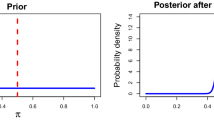Abstract.
One approach to representing knowledge or belief of agents, used by economists and computer scientists, involves an infinite hierarchy of beliefs. Such a hierarchy consists of an agent's beliefs about the state of the world, his beliefs about other agents' beliefs about the world, his beliefs about other agents' beliefs about other agents' beliefs about the world, and so on. (Economists have typically modeled belief in terms of a probability distribution on the uncertainty space. In contrast, computer scientists have modeled belief in terms of a set of worlds, intuitively, the ones the agent considers possible.) We consider the question of when a countably infinite hierarchy completely describes the uncertainty of the agents. We provide various necessary and sufficient conditions for this property. It turns out that the probability-based approach can be viewed as satisfying one of these conditions, which explains why a countable hierarchy suffices in this case. These conditions also show that whether a countable hierarchy suffices may depend on the “richness” of the states in the underlying state space. We also consider the question of whether a countable hierarchy suffices for “interesting” sets of events, and show that the answer depends on the definition of “interesting”.
Similar content being viewed by others
Author information
Authors and Affiliations
Rights and permissions
About this article
Cite this article
Fagin, R., Geanakoplos, J., Halpern, J. et al. The hierarchical approach to modeling knowledge and common knowledge. Game Theory 28, 331–365 (1999). https://doi.org/10.1007/s001820050114
Issue Date:
DOI: https://doi.org/10.1007/s001820050114




